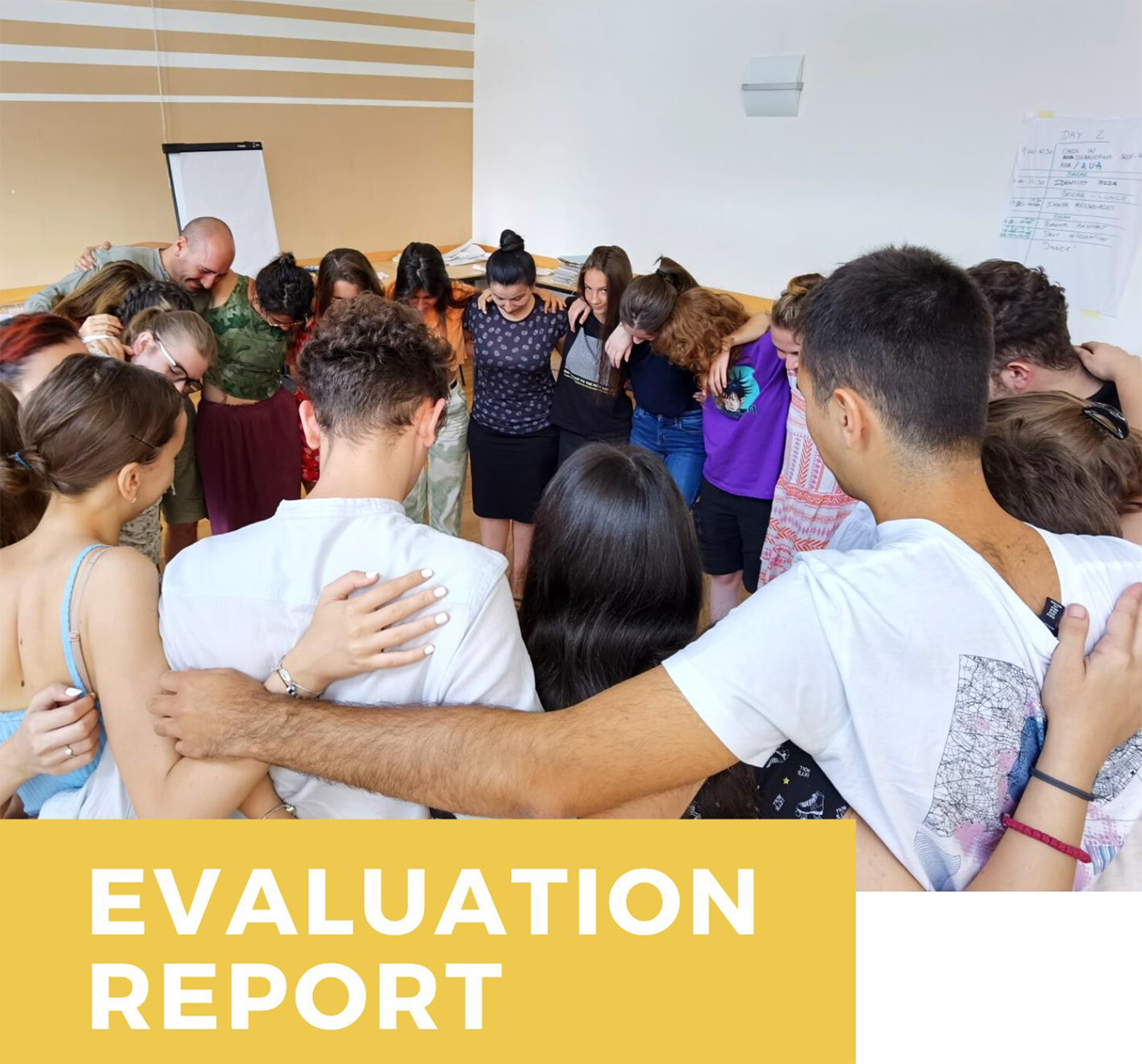This report from the project PeerAct provides the results from the evaluation and makes a series of recommendations on the program’s future development.
The impetus for the PeerAct project was the perceived upward trend in discrimination and intolerance among youth based on religion, gender, ethnicity, race, disability, sexual orientation or simply not fitting the social norms. The partner countries (North Macedonia, Portugal, Romania, Serbia, and Slovenia) proposed an intervention based on a sequential anti-bias education peer training programme, with the aim of helping young participants to acquire the necessary knowledge and develop skills and attitudes to identify and challenge prejudice, stereotypes, and discrimination in their own contexts.
The PeerAct project engaged partner organizations, (future) peer trainers, and participants in local workshops throughout project implementation. Participants were young people who took part in the local workshops organized by the peer trainers at two points in the project timeline.

